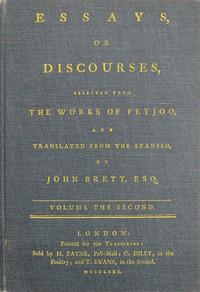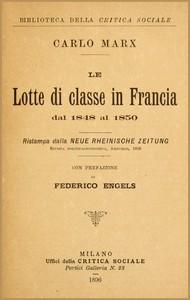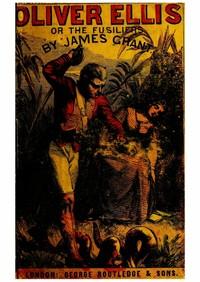Read this ebook for free! No credit card needed, absolutely nothing to pay.
Words: 129723 in 61 pages
This is an ebook sharing website. You can read the uploaded ebooks for free here. No credit cards needed, nothing to pay. If you want to own a digital copy of the ebook, or want to read offline with your favorite ebook-reader, then you can choose to buy and download the ebook.
CHAP.
OLIVER ELLIS.
BOYHOOD.
"When is a man the arbiter of his own destiny? for he is like the leaf which is torn from a tree, and which the wind of heaven blows about."
Love of country, a noble sentiment, is ever strong in the heart of a true soldier. When the 67th, or South Hampshire regiment, commanded by Callender of Craigforth, landed at Portsmouth in 1772, after a long career of dangerous foreign service, with one accord and impulse the whole of the men threw themselves on the beach and kissed the pebbles.
I was born in the camp of Burgoyne's army when it was on the borders of Lake Champlain: thus, the first sounds to which my infant ears became accustomed were the rattle of the drum, the notes of the Kentish bugle, the tread of marching feet, and the thoughtless hilarity of my father's comrades.
I remember myself first as a little boy, the pet and plaything of the soldiers, who made bats and balls, tops and toys for me; who allowed me to ride on their backs, and to hold on by their queues, whenever I had a mind to do so; who told me old stories of Wolfe's days, of the siege of Belleisle, and of wild adventures in West Florida. I remember of marches from town to town, from camp to barrack, and from fort to fort--all of which seem like dreams to me now; while the troops trod on, through clouds of summer dust or the deep snows of an American winter, and I with other regimental imps, sat merrily and cosily perched on the summit of a baggage-waggon, among trunks, arm-chests, knapsacks, pots, kettles, and soldiers' wives, who smoked, sung, and swore occasionally, and bantered the escort who marched on each side, with bayonets fixed. A thousand childish incidents of the soldiers' kindness to me when a boy , are lingering in my memory, while many a more important event of the days and years between that time and this, is forgotten for ever.
After this bereavement, my mother returned home with her two children , and, renting a small cottage, about a mile from her native town, lived the quiet and secluded life that the scanty pension of a captain's widow allotted her.
I was two years older than dear little Lotty, who was a pretty black-eyed girl, with a fair skin, and great masses of dark-brown hair.
The pretty village in which we resided lay at the bottom of a dell, which, in shape, resembled a great natural basin. Its sloping sides were clothed with luxuriant wood. Above the ancient trees, the old grey belfry of the village church--a church in which Knox had preached and the Covenant was signed--peeped forth from a mass of ivy that clambered to its weathercock. Through the dell brawled a rapid stream, which came foaming down from the mountains, and turned the great mossy wheel of an ancient mill, which, with the blue-slated manse, the quaint old kirk, and the ruined fragment of a haunted tower, wherein, as legends averred, a spectre wandered and treasure was buried, formed the four principal features in the valley.
The stream where the spotted trout lurked in the deeper holes, or shot to and fro in the sunbeams, was crossed by a little bridge, which, in my boyhood, I considered a great work of art, though, in after-years, I was astonished to find it so diminutive. The rush of the mill-race, as it poured in white foam over a wooden duct; the voices of the children that played on the green before the village school; the ceaseless clink of the hammer in the forge, which formed the rendezvous of all the male gossips; the occasional note of a blackbird or a cushat dove from the coppice,--were the only sounds that were heard in our valley, save when the tolling of the church bell announced the Sunday, when the air was hushed and still, "and even the forest leaves seemed stirred with prayer."
Though little more than a mile from a large and populous city, our hamlet was as secluded as if it had been twenty leagues distant. No thought had we then of railroads, electric wires, or Atlantic cables; and even the stage-coach passed far from our wooded locality.
Free books android app tbrJar TBR JAR Read Free books online gutenberg
More posts by @FreeBooks










